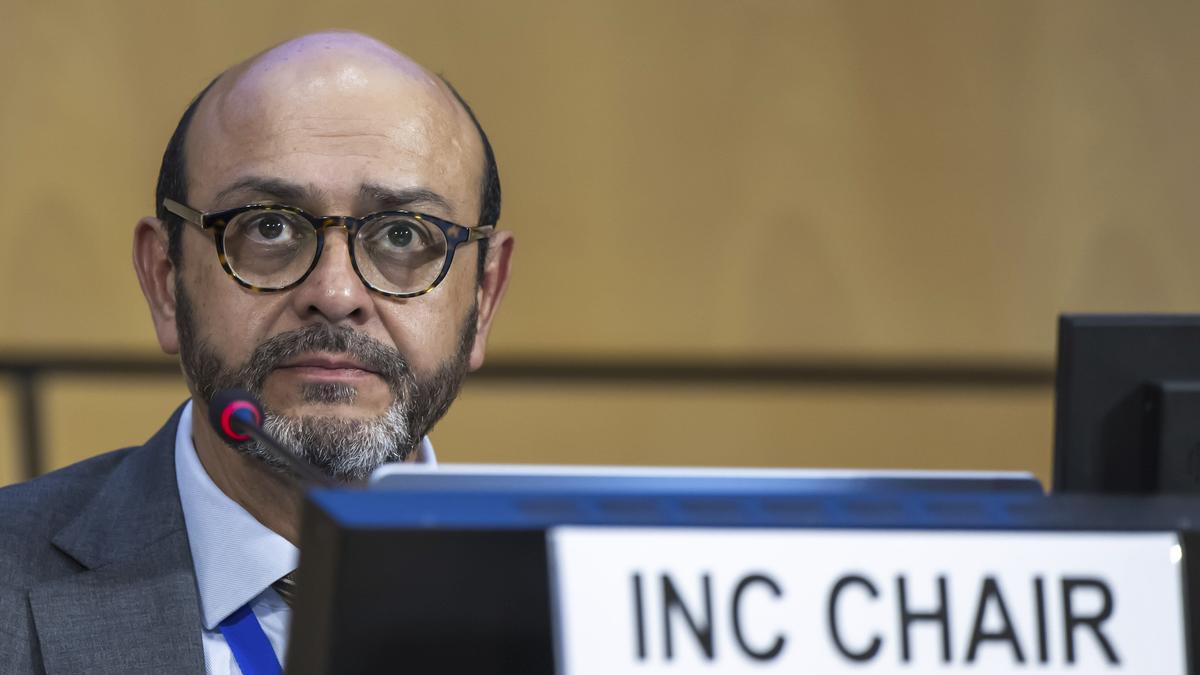Science
Global Talks on Plastic Pollution End Without Agreement

Negotiations aimed at establishing a global treaty to combat plastic pollution concluded on August 15, 2025, without reaching a consensus. Delegates from 185 countries gathered at the United Nations in Geneva for discussions that began on August 5, but ultimately were unable to bridge the divide between nations advocating for significant cuts in plastic production and those, particularly oil-producing states, seeking a more limited focus on waste management.
The talks extended past the deadline of Thursday, demonstrating the urgency of the discussions. Despite efforts that included overnight sessions, the negotiators could not agree on a final proposal to resolve their differences. As participants reconvened in the main assembly hall of the UN Palais des Nations, the atmosphere was one of disappointment and frustration.
Norway’s lead negotiator expressed the sentiment of many, stating, “We will not have a treaty to end plastic pollution here in Geneva.” The call for ongoing efforts was echoed by representatives from various nations. Cuba emphasized the necessity of urgent action, remarking, “The planet and present and future generations need this treaty.” Palau, representing a coalition of 39 small island developing states (SIDS), articulated the frustration of smaller nations that feel disproportionately affected by environmental crises, despite their minimal contributions to plastic pollution.
The discussions highlighted a significant divide in priorities. The High Ambition Coalition, which includes the European Union, the United Kingdom, Canada, and several African and Latin American nations, advocated for provisions that would mandate reductions in plastic production and the phasing out of harmful chemicals associated with plastics. Conversely, the Like-Minded Group, consisting of mainly oil-producing nations such as Saudi Arabia, Kuwait, Russia, Iran, and Malaysia, argued for a narrower focus, primarily addressing waste management rather than production.
Kuwait’s representative noted, “Our views were not reflected… without an agreed scope, this process cannot remain on the right track and risks sliding down a slippery slope.” This disagreement underscores the complex interplay between economic interests and environmental responsibilities.
The urgency of addressing plastic pollution is underscored by alarming statistics. Globally, over 400 million tonnes of plastic are produced annually, with half of that designated for single-use items. While approximately 15% of plastic waste is collected for recycling, a mere 9% is effectively recycled. The majority of plastic waste is either sent to landfills (46%), incinerated (17%), or mismanaged, ultimately becoming litter (22%).
The failure to reach an agreement in Geneva marks a setback for global efforts to tackle the escalating plastic pollution crisis. As delegates reflect on the results, the call for continued dialogue and urgent action remains paramount. The future of international cooperation on this pressing issue hangs in the balance, with advocates urging that the time to act is now.
-

 World5 months ago
World5 months agoSBI Announces QIP Floor Price at ₹811.05 Per Share
-

 Lifestyle5 months ago
Lifestyle5 months agoCept Unveils ₹3.1 Crore Urban Mobility Plan for Sustainable Growth
-

 Science4 months ago
Science4 months agoNew Blood Group Discovered in South Indian Woman at Rotary Centre
-

 World5 months ago
World5 months agoTorrential Rains Cause Flash Flooding in New York and New Jersey
-

 Top Stories5 months ago
Top Stories5 months agoKonkani Cultural Organisation to Host Pearl Jubilee in Abu Dhabi
-

 Sports4 months ago
Sports4 months agoBroad Advocates for Bowling Change Ahead of Final Test Against India
-

 Science5 months ago
Science5 months agoNothing Headphone 1 Review: A Bold Contender in Audio Design
-

 Top Stories5 months ago
Top Stories5 months agoAir India Crash Investigation Highlights Boeing Fuel Switch Concerns
-

 Business5 months ago
Business5 months agoIndian Stock Market Rebounds: Sensex and Nifty Rise After Four-Day Decline
-

 Sports4 months ago
Sports4 months agoCristian Totti Retires at 19: Pressure of Fame Takes Toll
-

 Politics5 months ago
Politics5 months agoAbandoned Doberman Finds New Home After Journey to Prague
-

 Top Stories5 months ago
Top Stories5 months agoPatna Bank Manager Abhishek Varun Found Dead in Well









